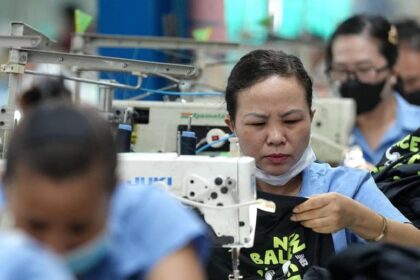A coordinated push to disrupt regional scam networks
China and five Southeast Asian neighbors have launched a new wave of cooperation to take down telecom and online fraud groups that prey on victims across borders. At a ministerial level meeting in Kunming, Yunnan Province, senior law enforcement officials from China, Cambodia, Laos, Myanmar, Thailand, and Vietnam agreed to coordinate arrests, share intelligence in real time, and continue the repatriation and handover of suspects linked to transnational fraud. They signed outcome documents that set out joint goals and affirmed a shared resolve to dismantle the scam compounds that have harmed citizens and drained savings across the region.
- A coordinated push to disrupt regional scam networks
- What was agreed in Kunming
- Why telecom fraud networks took root in the Mekong region
- What joint operations have accomplished
- Victims, recruitment and the playbook used by scam centers
- Legal and diplomatic tools now in play
- Tourism, public safety and the stakes for the region
- Challenges that complicate the crackdown
- Next steps in regional action
- What to Know
The announcement caps a year of stepped up cross border enforcement. Authorities say the trilateral mechanism created by China, Myanmar, and Thailand has focused on Myawaddy in Myanmar, a long running hot spot for fraud and illegal gambling. Myanmar has transferred more than 5,500 criminal suspects to China this year in related actions. Joint teams have also struck at hubs elsewhere. Police from China and Laos raided compounds in the Golden Triangle Special Economic Zone, detaining more than 600 suspects. Coordinated operations with Vietnam netted 149 suspects, and actions with Cambodia resulted in 2,141 arrests, with all of those suspects sent to China for investigation. The regional drive is aimed at breaking up the business model of these criminal groups, rescuing victims, and restoring public confidence in travel and digital commerce.
What was agreed in Kunming
Officials committed to a package of steps designed to make cooperation routine, faster, and more comprehensive. The six countries said they will mount coordinated multinational operations targeting known crime areas and mobile scam teams, build a standing coordination mechanism, and expand intelligence sharing on networks, recruiters, financial flows, and technology used in fraud. The countries also pledged to continue returning suspects and to speed the handover of seized data and equipment so cases can be prosecuted. The agreement emphasizes tracking ringleaders, shutting down compounds that house call centers and illegal casinos, and improving cooperation to rescue people trapped by traffickers.
International bodies are plugged into the effort. Interpol and the United Nations Office on Drugs and Crime took part in the Kunming meeting as observers, reflecting concern about an industry that has reached far beyond the Mekong basin. The Lancang Mekong Integrated Law Enforcement and Security Cooperation Center plans a new phase of regional operations, building on a campaign that has already produced large numbers of arrests and the rescue of victims. These platforms give police units a way to coordinate border actions, align case files, and move faster when a lead appears in another jurisdiction.
Why telecom fraud networks took root in the Mekong region
Scam operations flourished in parts of mainland Southeast Asia that combine rapid digital adoption with gaps in local oversight. Over the past several years, criminal organizers built clusters of compounds in places such as Myawaddy and Shwe Kokko in Myanmar and the Golden Triangle Special Economic Zone in Laos. Parts of Cambodia, including Sihanoukville and border towns, also became home to call centers and online gambling sites. These areas often sit near porous borders and, in some cases, inside zones where government control is weak. Groups capitalized on access to internet infrastructure, online payments, and a steady flow of workers lured by fake job offers.
Telecom fraud covers a wide range of schemes. It includes romance or investment swindles sometimes referred to as pig butchering, where criminals build rapport with targets, then steer them to deposit money on fake trading platforms. It also includes phishing messages, loan and parcel scams, and impersonation of officials. The operations rely on social engineering, stolen identities, spoofed phone numbers, and scripts designed to keep victims engaged while they send larger transfers. Many of the calls and chats originate in one country while the victims sit in another, which is why coordination across borders is central to disrupting the networks.
What joint operations have accomplished
The most visible activity has centered on the Thai Myanmar frontier. Through a trilateral coordination mechanism, police and officials from China, Myanmar, and Thailand have increased pressure on Myawaddy and nearby areas. Authorities in Myanmar repatriated more than 5,500 suspects to China in 2025 after combined pressure on illegal compounds tied to gambling and telecom scams. Thai agencies have worked with counterparts to move people safely across checkpoints and to reduce the flow of recruits and supplies into the compounds.
Elsewhere, Chinese and Lao officers targeted compounds in the Golden Triangle Special Economic Zone, detaining more than 600 suspects in a single sweep. Joint teams with Vietnam arrested 149 suspects in a special operation against telecom fraud and online gambling. In a separate case, Vietnamese police, acting on Chinese leads, dismantled five dens in Ho Chi Minh City and transferred 19 Chinese suspects and seized devices through the Dongxing Port in Guangxi. Cooperation with Cambodia led to 2,141 arrests across several provinces, with those suspects handed to Chinese authorities for investigation.
Regional coordination has moved beyond single raids. Under the Lancang Mekong security framework, the first phase of a joint operation in late 2024 produced 160 busts, more than 70,000 arrests, and coordinated rescues of victims. Those tallies cover a broad range of cyber and related crimes, with a strong focus on dismantling online scamming networks and the illegal gambling infrastructure that sustains them. The goal is to combine arrests with the closure of physical sites, seizure of servers and devices, and the tracing of funds through payment processors and crypto wallets.
Chinese foreign ministry spokesperson Guo Jiakun framed the mission in shared interest terms, saying cooperation is essential for countries facing the same threat.
Fighting online gambling and telecom fraud is a necessary choice to safeguard the common interests of China and other regional countries.
Victims, recruitment and the playbook used by scam centers
The growth of telecom fraud in the region has gone hand in hand with human trafficking. Recruiters advertise high paying jobs in hospitality, customer service, or tech support, then route applicants to compounds near borders. Once inside, many people report that passports are taken and they face threats, fines, or violence if they refuse to follow scripts. In a recent case that drew wide attention inside China, a Chinese actor went missing near the Thai Myanmar border and was later found in Myanmar, underscoring the risks to travelers and the ties between trafficking and online scamming.
Scam playbooks continue to evolve. Operators mix friendly conversation with staged proof of fake profits. They direct targets to download unfamiliar apps or move conversations to encrypted channels. They request small test deposits, then encourage larger transfers. Some groups now use deepfake images and voices, and they steer victims to convert money to cryptocurrency or stable coins to move funds quickly. Understanding how these schemes work can help potential victims avoid harm. Common red flags include:
- Unsolicited outreach that quickly shifts from a public app to a private chat
- Fast moving personal relationships with early talk of joint investing
- Requests to install unfamiliar trading apps or to use offshore websites
- Pressure to deposit more after seeing staged profits on a dashboard
- Demands to pay taxes or fees to unlock withdrawals
- Insistence on secrecy or discouraging independent verification
Experts who track trafficking in the region say joint action has made a difference, though sustained work is required to keep pressure on the networks. Benedikt Hofmann, the acting regional representative of the United Nations Office on Drugs and Crime for Southeast Asia and the Pacific, stressed how collaboration has changed the picture.
The cooperation between China and other countries in the region has been encouraging and has created momentum for such collaboration.
Legal and diplomatic tools now in play
Governments have combined repatriation, extradition, and sanctions with new investigative methods. In a high profile case, Thailand extradited She Zhijiang to China to face charges tied to a large development in Myanmar that authorities say became a hub for internet fraud and illegal casinos. The case illustrates how national courts, police, and immigration units can work together when suspects move across jurisdictions. Beyond Asia, United States authorities have announced a federal task force aimed at disrupting scam operators and seizing equipment and crypto assets linked to fraud centers.
Inside the Mekong framework, police units are building standing channels for intelligence sharing and case coordination. Interpol notices, shared databases, and joint training on digital forensics are becoming routine. Observers from UN agencies provide technical guidance on victim protection and the handling of digital evidence. China’s public security authorities say they will stay focused on dismantling hubs, securing arrests, and making sure seized data helps identify accomplices and the money trail. The Ministry of Public Security described its next steps in a recent statement.
Chinese police will continue to deepen international collaboration, advance joint operations, dismantle fraud hubs, and pursue suspects with greater determination.
Tourism, public safety and the stakes for the region
Tourism is a lifeline for many economies in Southeast Asia. Before the pandemic, Chinese travelers spent large sums in neighboring countries. Reports of trafficking and scams have worried travelers and families, and some tour groups have canceled trips in the past when safety concerns spiked. Thai officials have said they want to resolve issues that affect the country’s image as a safe destination and have paired police operations with public messaging to reassure visitors.
For governments, the campaign against telecom fraud is about more than arrests. It is tied to public confidence, financial stability, and the reputation of border areas that want legitimate investment. For China, it is also about protecting citizens who fall victim to remote scams that often start with a message on a phone and end with serious loss. The new coordination mechanism is designed to support both immediate enforcement and longer term cooperation so that results last.
Challenges that complicate the crackdown
Criminal groups adapt quickly. When police apply pressure in one location, organizers try to shift operations to other towns or even other countries. They break call centers into smaller cells and use encrypted apps and offshore servers to obscure communication. Caller ID spoofing makes it hard for victims to spot a fake number. Crypto assets move through mixers and exchanges that are outside the reach of a single regulator, which complicates asset recovery.
There are also governance issues that require patience and coordination. Some scam compounds are located in areas with weak state control. Corruption, intimidation, and complex local power structures can slow enforcement. At the same time, rights advocates urge agencies to balance repatriations and arrests with screening and care for trafficking victims. Clear referral systems, safe shelters, and legal support for those coerced into crimes are part of a credible response.
Building strong cases across borders is technically demanding. Investigators must preserve digital evidence, match records from different systems, and handle language barriers. Mutual legal assistance processes can be slow without dedicated contact points. The Kunming commitments seek to ease these bottlenecks by aligning procedures, improving data exchange, and using joint task forces to keep files moving.
Next steps in regional action
Officials expect the next phase of joint work to focus on a few priorities. These include steady pressure on remaining hubs in Myawaddy and other enclave areas, renewed action against illegal online gambling that funds scams, and expanded efforts to arrest organizers and financial managers who profit from the operations. Regular joint patrols and case reviews are likely to continue through the Lancang Mekong coordination center.
Longer term, the six countries are looking to deepen cooperation on digital forensics, the tracing of illicit funds, and the use of risk alerts within messaging and social platforms. Closer engagement with telecom carriers, payment firms, and crypto exchanges can help block funds and shut down services that enable fraud. Public awareness campaigns in multiple languages, combined with faster help for potential victims, can cut off the supply of recruits and reduce the pool of people targeted by scammers.
What to Know
- China, Cambodia, Laos, Myanmar, Thailand, and Vietnam agreed in Kunming to intensify joint action against telecom and online fraud.
- The six countries will run coordinated operations, set a standing coordination mechanism, and expand real time intelligence sharing.
- Myanmar transferred more than 5,500 suspects to China this year after joint pressure on scam hubs in Myawaddy.
- Raids in Laos’ Golden Triangle Special Economic Zone detained more than 600 suspects, with additional arrests in Cambodia and Vietnam.
- Vietnamese police dismantled five fraud dens in Ho Chi Minh City and transferred 19 Chinese suspects through Dongxing Port in Guangxi.
- Interpol and the UN Office on Drugs and Crime took part in the Kunming meeting as observers, reflecting international engagement.
- The Lancang Mekong coordination framework reported large results in a 2024 campaign and plans a new phase of operations.
- Authorities say the campaign targets both compounds and financial flows tied to illegal online gambling and telecom scams.
- Experts warn that traffickers and fraud rings adapt quickly, which makes sustained cooperation and victim protection essential.
- Officials see the crackdown as key to public safety, tourism recovery, and confidence in the region’s digital economy.












